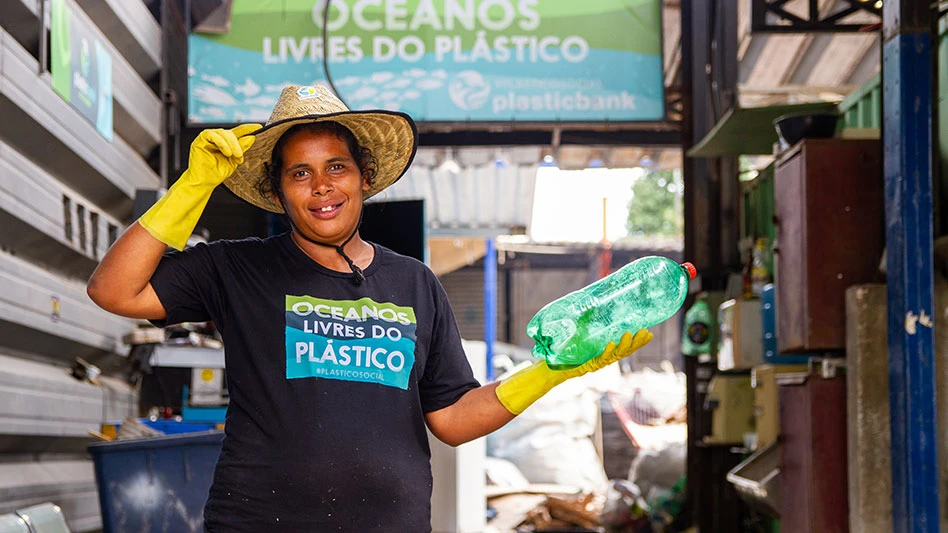
Photo courtesy of The Plastic Bank Recycling Corp.
SC Johnson, a consumer packaged goods manufacturer based in Racine, Wisconsin, has announced it has prevented 40 million kilograms (or about 88 million pounds) of coastal plastic from entering the ocean, in partnership with Vancouver-based Plastic Bank.
Plastic Bank empowers a social recycling movement that stops plastic scrap from reaching oceans and uses discarded plastic as currency to help alleviate poverty in disadvantaged communities. Plastic Bank identifies vulnerable coastlines across the world that need plastic collection infrastructure; the organization supports local entrepreneurs to establish collection branches. It gathers recycling communities to collect plastic on land—within 31 miles of a coastline or ocean-bound waterway—that might otherwise end up in oceans or landfills.
Collected plastic is exchanged at the Plastic Bank branches by community members for secure income and benefits and is processed into what Plastic Bank calls Social Plastic feedstock for reuse in products and packaging.
Since 2018, SC Johnson has partnered with Plastic Bank to prevent plastics from ending up in oceans and provide disadvantaged communities with new economic opportunities. SC Johnson says the partnership has created more than 500 collection branches across Indonesia, the Philippines and Brazil, supporting more than 19,000 collection community members to achieve this milestone.
“We’re proud to partner with Plastic Bank and support recycling infrastructure to stop plastic before it reaches the ocean or landfill,” SC Johnson CEO Fisk Johnson says. “Reintroducing the captured plastic into products and packaging is key to addressing the ocean plastics crisis. I’m particularly pleased that this program with Plastic Bank helps to address poverty and create a closed-loop supply chain at the same time. It is vital that we continue to find new ways to keep our oceans clean for the sake of future generations.”
RELATED: Doing well by doing good
Since 2019, SC Johnson says it has been integrating Plastic Bank’s Social (coastal) Plastic into its Windex brand packaging in North America and Mr. Muscle in the United Kingdom.
“Our collaboration with SC Johnson enables us to make great strides in tackling these challenges," Plastic Bank founder David Katz says. "But we must understand that our milestone is just the dust of the massive amount of plastic left in the environment. We all need to take part in building a world where no material is wasted and no human is wasteful."
Latest from Recycling Today
- Aqua Metals secures $1.5M loan, reports operational strides
- AF&PA urges veto of NY bill
- Aluminum Association includes recycling among 2025 policy priorities
- AISI applauds waterways spending bill
- Lux Research questions hydrogen’s transportation role
- Sonoco selling thermoformed, flexible packaging business to Toppan for $1.8B
- ReMA offers Superfund informational reports
- Hyster-Yale commits to US production





